As we step into the gaming landscape of 2026, a new horizon of possibilities unfolds. At the core of strategic gaming lies chess, a timeless challenge that has fascinated players across generations. However, in this digital age, the gaming world offers an array of intriguing alternatives.
In this comprehensive roundup, we will talk about the best chess alternatives. These selections have been carefully curated to provide a fresh twist on strategy while preserving the essence of competition. Whether you’re a chess veteran seeking a new test or a newcomer to strategic board games, these free Chess alternatives promise to engage, entertain, and stimulate your mind. Let’s get started!
Note: This article contains Amazon affiliate links, which means if you make purchases using these links, we may earn a commission at no extra cost to you.
Why Are People Looking for Games Like Chess?
The top five reasons people look for alternatives to chess are:
- Desire for Fresh Challenges: Chess is a well-established and highly strategic game. Some players seek alternatives to experience new challenges and strategic dynamics, as they may have exhausted the possibilities in chess.
- Accessibility: Chess can be complex and difficult for beginners to grasp. People may seek alternatives with simpler rules and easier learning curves to enjoy strategic board gaming without the steep entry barrier.
- Thematic Engagement: Chess is an abstract game with no inherent theme or narrative. Players who enjoy immersive storytelling and thematic experiences often look for alternatives that offer a stronger thematic element.
- Social Interaction: Chess is primarily a two-player game with minimal social interaction during play. Some players prefer alternatives that encourage more social interaction, negotiation, or team play, especially in group settings.
- Innovation and Variety: Chess has remained relatively unchanged for centuries. People seeking innovation and variety in their gaming experiences explore alternatives that introduce fresh mechanics, unique pieces, or novel gameplay elements.
These reasons reflect a combination of seeking new challenges, ease of play, thematic engagement, social aspects, and the desire for innovative gaming experiences that drive people to explore alternatives to chess.
11 Best Chess Alternatives in 2026
1. Shogi: Japanese Chess with a Twist
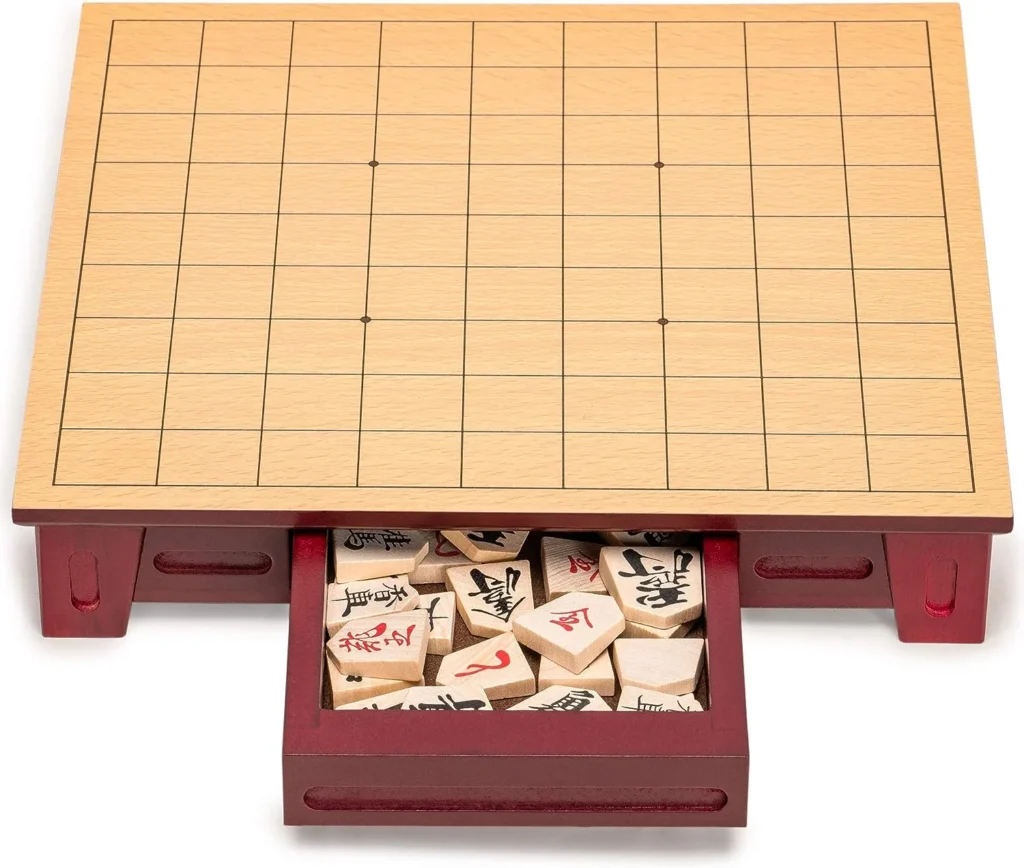
One game I enjoy that is similar to chess is “Shogi,” also known as Japanese chess. Shogi shares similarities with chess in its two-player format and objective of capturing the opponent’s pieces.
Originating in Japan during the 8th century, Shogi has evolved over centuries to become a popular board game. Its popularity soared during the Edo period (1603-1868), as it became a favorite pastime among samurai and commoners alike.
However, Shogi distinguishes itself with unique gameplay mechanics, such as “drop” moves, where captured pieces can be reintroduced to the board by the capturing player. Like chess, Shogi requires strategic planning, tactical maneuvers, and foresight to outmaneuver the opponent and secure victory.
However, Shogi’s gameplay differs from chess with a 9×9 board and 20 pieces per player. Players can promote their pieces upon entering the opponent’s territory, adding strategic depth. The game’s objective is to checkmate the opponent’s king, known as the “Gyoku.”
Its blend of familiarity and novel gameplay elements makes it a captivating and enjoyable strategic board game.
— Aviad Faruz, CEO, Know Mastery
2. Azul: Where Artistry Meets Strategy
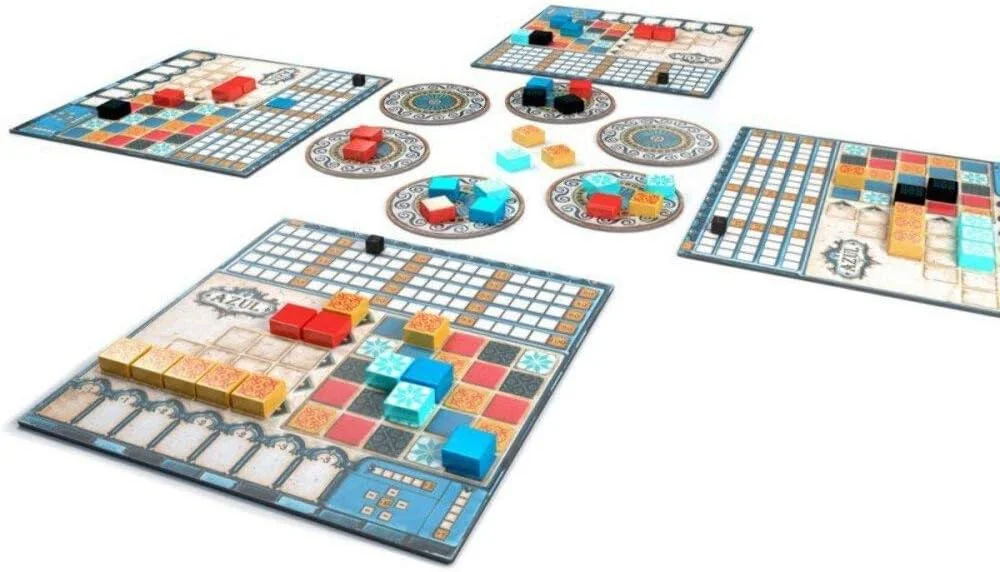
Azul, often heralded as the captivating alternative to chess, offers a refreshing take on strategic board games. Originating in 2017, Azul was designed by Michael Kiesling and published by Plan B Games. It rapidly gained popularity, thanks to its elegant blend of simple rules and deep strategy.
In Azul, players take on the roles of artisans tasked with embellishing the walls of the Royal Palace of Evora in Portugal with stunning ceramic tiles. The game’s appeal lies in its accessibility; players draft and place tiles, aiming to create harmonious patterns while thwarting their opponents’ efforts.
Comparing Azul to chess, it’s evident that both games demand strategic prowess. However, Azul offers a quicker learning curve, making it accessible to a broader audience. Chess, on the other hand, has centuries of tradition and an intricate set of rules, requiring intense concentration and a longer learning process.
In Azul, best practices often involve adapting to the ever-changing tile selections, anticipating opponents’ moves, and skillfully managing limited resources. Chess, conversely, relies heavily on foresight, meticulous planning, and mastering various strategies and openings.
Azul has emerged as a delightful alternative to the cerebral intensity of chess, offering a different kind of strategic challenge that’s both visually appealing and mentally stimulating.
— Nidhi Thakur, Editor at Earthtechy
See Also: 10 Wordle Alternatives (Free Included)
3. Checkers: A Simple, Strategic Game
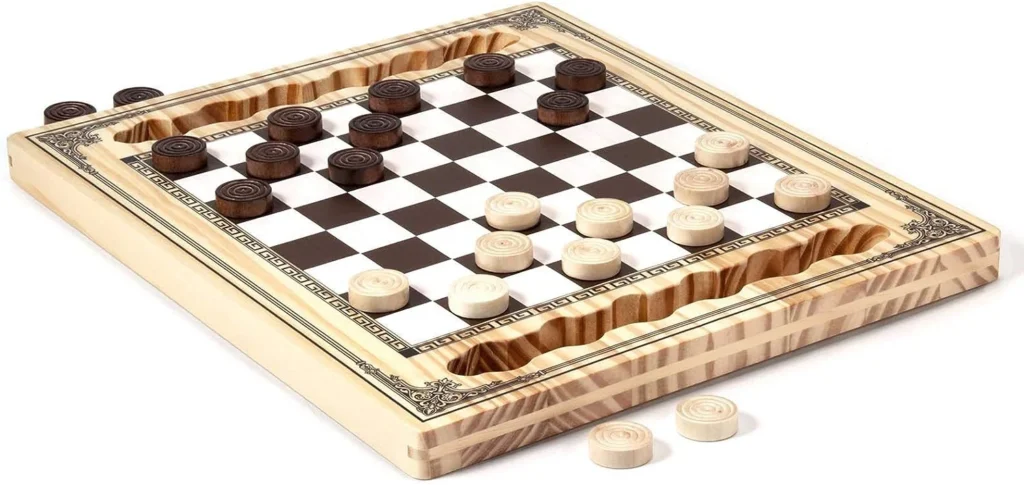
Checkers is very similar to chess. I have always enjoyed both games. They are different yet similar at the same time. Checkers, just like chess, is played on a board between two people. This game also tests your wit.
This is a rather simple game, but it gets complicated when you have to win using fewer and fewer moves. It checks your creativity and how smartly you make moves to escape the opponent. These are the few similarities that make checkers and chess somewhat alike. The colors of both games are often the same as well. Both are mostly played in black and white.
— Rayner Teo, Founder, TradingWithRayner
4. Makruk: The Thai Chess Variant
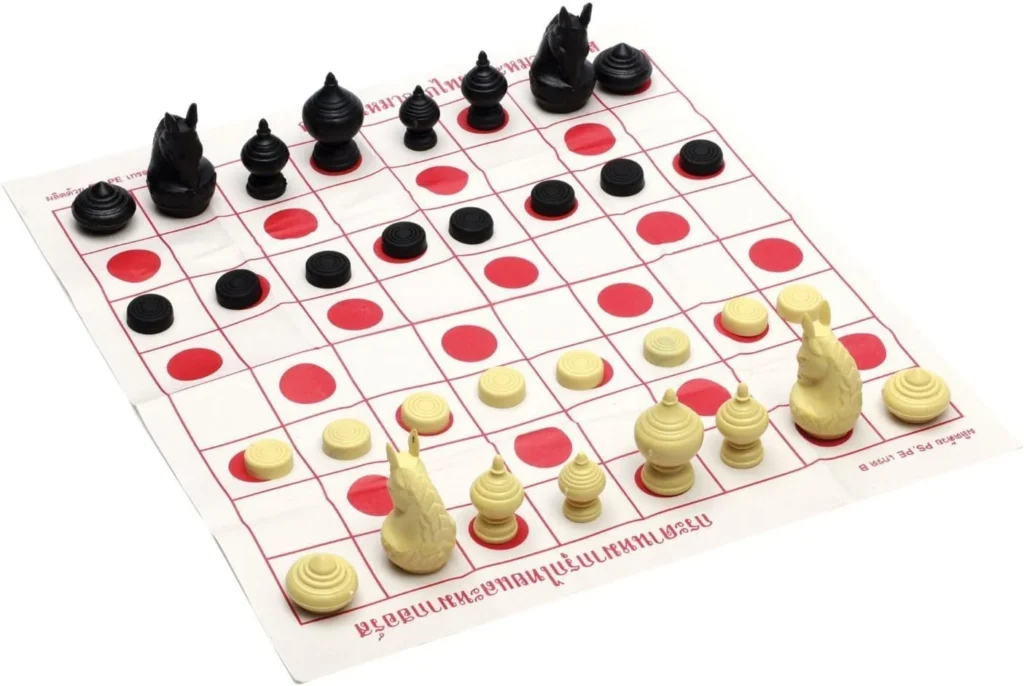
Makruk is often considered the Thai Chess, and it’s very similar to what is commonly known as chess. This strategy board game has descended from a 6th-century game called Chaturanga. It is part of the family of chess variants around the world and is popular in circles around the world, like Cambodia and, obviously, Asia.
While it’s been a while since the last game, a game of this sort is like riding a bicycle and comes back to you almost instantly. While chess is enjoyable, Makruk is a chess alternative that is also enjoyable to play!
— Jason Boyd, Founder, Evolve Digital Agency
5. Go: A Game of Territory and Strategy
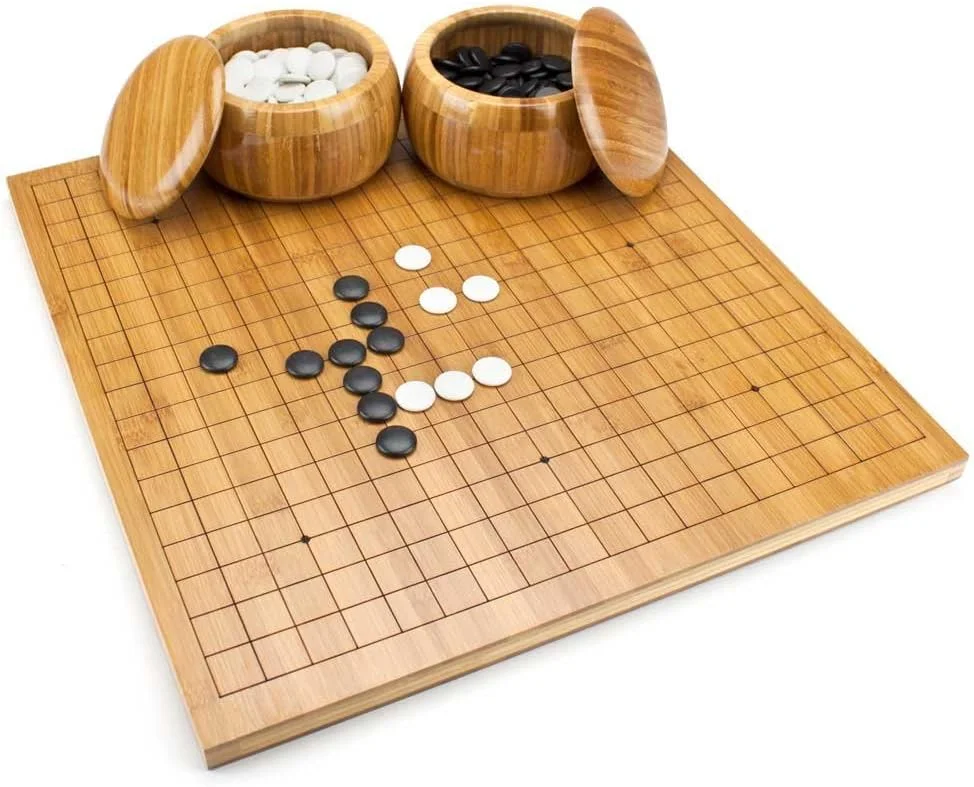
One game I thoroughly enjoy, similar to chess, is Go. The ancient board game of Go, known as “Weiqi” in China and “Baduk” in Korea, has a rich history dating back over 2,500 years. Its origins are somewhat shrouded in legend, but it is believed to have been created in China during the Warring States period.
It gained popularity in Asia and eventually spread to Japan, where it became known as “Igo” or “Go.” The game embodies deep complexity and profound strategy, reflecting its cultural significance as a symbol of intellect and discipline.
In “Go,” players take turns placing black and white stones on a grid, aiming to control more territory than their opponent. Like chess, “Go” requires strategic thinking, deep concentration, and long-term planning.
Both games involve outsmarting your opponent while understanding the consequences of each move. The simplicity of rules in “Go” belies its complexity, making it an intellectually stimulating and captivating experience.
— Farhan Advani, Director Marketing, PhotoshopBuzz
6. Xiangqi: Chinese Chess with Unique Pieces
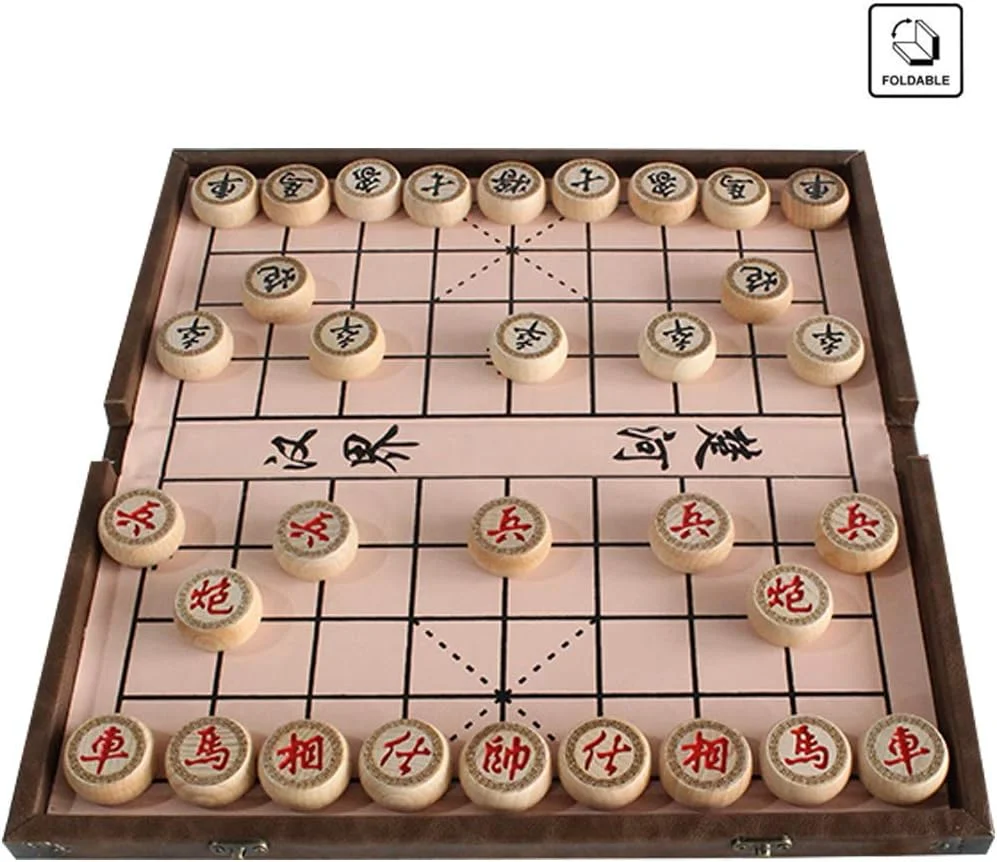
Known as “Chinese chess,” Xiangqi has a similar objective to chess, which is to checkmate the opponent’s general. Its history can be traced over a thousand years, possibly originating during the Eastern Han Dynasty (25-220 AD). Evolving from an Indian game called Chaturanga, it developed uniquely in China, featuring pieces representing military units like chariots, horses, and generals, played on a gridded board resembling a battlefield.
Xiangqi is a game of strategy and tactics, deeply rooted in Chinese culture. It’s immensely popular in China and other East Asian countries, celebrated for its rich history, challenging gameplay, and enduring cultural significance.
Like chess, Xiangqi requires players to strategize and plan their moves carefully. However, Xiangqi is played on a larger board and includes additional pieces such as cannons and elephants, each with their own movement rules.
— Vincent Zhu, Founder, ShineACS Locks
7. Worms Rumble: Strategic Chaos

Worms Rumble is an enjoyable game that shares some similarities with chess, although it’s much more fast-paced and chaotic.
Like chess, Worms Rumble requires strategic thinking, with players needing to anticipate their opponent’s moves and react accordingly. Both games also demand an understanding of the “board,” or in the case of Worms Rumble, the arena layout. Positioning and maneuvering can be as vital as knowing how and when to use your arsenal, akin to moving chess pieces to control the board.
However, unlike the turn-based, contemplative nature of chess, Worms Rumble unfolds in real-time. This makes for more spontaneous, immediate decision-making. While chess is silent and solitary, Worms Rumble is filled with thrilling action and intense multiplayer battles.
— Lucas Wyland, Founder, Steambase
8. Cathedral: A Game of Wit and Wisdom
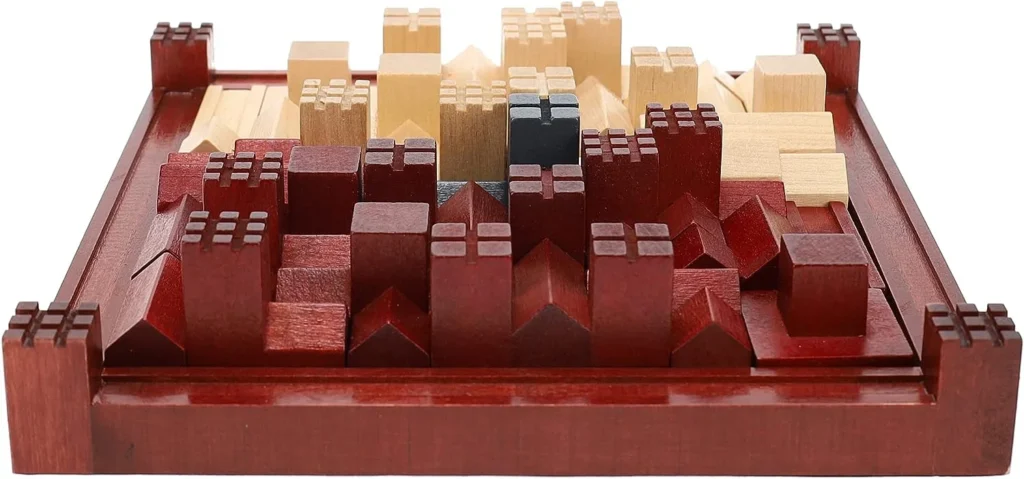
Cathedral is a captivating strategy board game that presents a distinctive alternative to traditional chess. Created by Robert Moore and published in 1978 by Anjar Co., Cathedral has gained popularity for its engaging gameplay and rich historical context.
Originating in the medieval city of Carcassonne in France, Cathedral draws inspiration from the construction of cathedrals during the Middle Ages. Players take on the roles of rival builders, seeking to construct their own magnificent structures while obstructing their opponent’s progress.
Cathedral’s rise to popularity can be attributed to its combination of strategic depth and accessible rules. The game revolves around spatial reasoning and territorial control, emphasizing the careful placement of wooden building pieces within the gridded game board. The objective is to enclose the opponent’s pieces while preserving your own territory, creating a dynamic and evolving strategic landscape.
Compared to chess, Cathedral offers a more unique and visually engaging experience. While chess relies on intricate piece movements and captures, Cathedral prioritizes territorial dominance and spatial tactics. It’s accessible for players of all skill levels and ages, making it a versatile alternative to the complexity of chess.
Best practices in Cathedral involve careful planning, territorial expansion, and a keen understanding of spatial relationships. Players must anticipate their opponent’s moves while strategically positioning their building pieces to secure victory. Cathedral’s blend of historical inspiration and strategic depth has earned it a dedicated following, making it a noteworthy chess alternative.
9. Chaturanga: The Ancient Game of Strategy
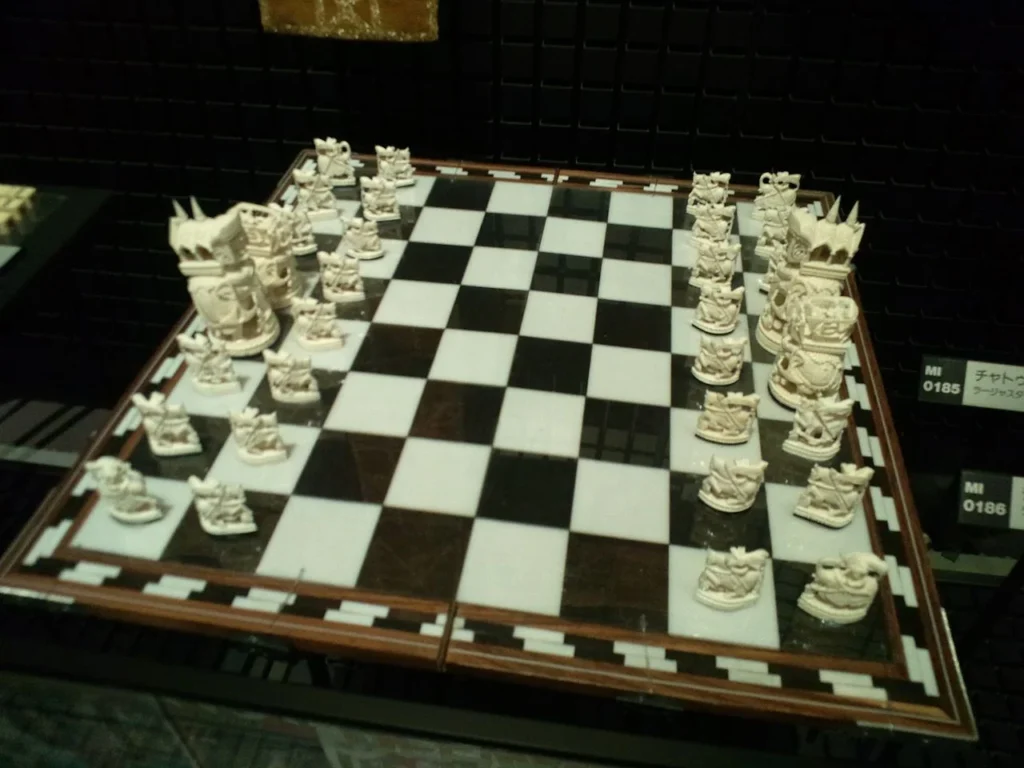
Chaturanga, often hailed as the precursor to modern chess, is a captivating alternative that offers a fascinating glimpse into the origins of this timeless strategy game. Originating in India during the Gupta Empire around the 6th century AD, Chaturanga was initially known as “chatur-anga,” which translates to “four divisions of the military” in Sanskrit. This name reflects the game’s four key components: infantry, cavalry, elephants, and chariots, which later evolved into the modern chess pieces we know today as pawns, knights, bishops, and rooks.
Chaturanga’s popularity gradually spread through India, Persia, and the Islamic world, evolving along the way. By the 7th century, it had made its way to the Islamic Caliphate, where it underwent significant modifications and was introduced to Europe through Moorish Spain during the 10th century.
Comparing gameplay to modern chess, Chaturanga shares many similarities. However, key differences include the lack of a queen, a weaker initial pawn double move, and slightly altered movement rules for the pieces. Best practices for Chaturanga revolve around strategic piece placement, central control, and king safety, much like chess.
Chaturanga, with its rich history and subtle variations, offers a captivating alternative to chess enthusiasts, providing an intriguing connection to the game’s ancient roots while maintaining the core principles of strategy and tactics that continue to captivate players worldwide.
Related: Best GeoGuessr Alternatives (Free)
10. Onitama: A Game that Combines Grace and Strategy
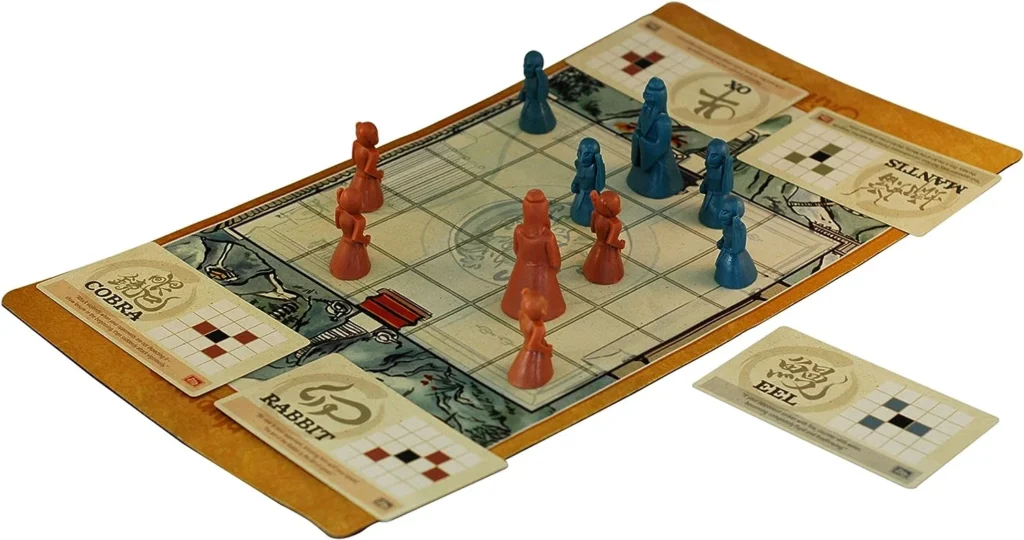
Originating in Japan, Onitama is a captivating strategy board game that offers a fresh and elegant alternative to the classic game of chess. Developed by Shimpei Sato and published by Arcane Wonders in 2014, Onitama quickly gained popularity for its blend of simplicity and depth.
Onitama’s rise to fame can be attributed to its accessible ruleset and engaging gameplay. The game is set on a 5×5 grid and features two martial arts schools battling for supremacy. Players control just five pieces: two masters and three students. The game’s dynamic nature comes from the use of movement cards, with each player having access to only two unique cards at a time. These cards dictate the possible moves, creating a constantly shifting tactical landscape.
Compared to chess, Onitama offers a quicker pace and a shorter learning curve, making it accessible to players of all skill levels. It encourages strategic thinking, adaptability, and calculated risk-taking. In chess, openings can involve memorizing extensive sequences, but Onitama relies on improvisation, enhancing its replayability.
Best practices in Onitama include analyzing your opponent’s moves, anticipating their strategy, and using your movement cards wisely. Timing and positioning are crucial, much like chess, but with a more dynamic twist.
Onitama has swiftly gained a dedicated following, offering a modern take on the timeless appeal of strategic board games.
See Also: Game Like Kahoot but With Money
11. Backgammon: An Ancient Game of Skill and Strategy
For those seeking an ancient yet thrilling alternative to chess, Backgammon stands as a timeless classic. Originating over 5,000 years ago, this game of skill and strategy has transcended civilizations, captivating players with its blend of luck and tactics.
Backgammon’s appeal lies in its simple yet strategic gameplay. Players race to move their pieces around the board, aiming to bear them off before their opponent while also strategically blocking and hitting their opponent’s pieces to gain an advantage.
While reminiscent of chess in its strategic depth, Backgammon offers a unique experience with its dice-driven gameplay and emphasis on timing and risk management. Its accessibility makes it suitable for players of all ages and skill levels, providing endless hours of entertainment and mental stimulation.
Moreover, with the convenience of online platforms like Backgammon-Online.net, players can enjoy the thrill of Backgammon anytime, anywhere, competing against friends or challenging opponents from around the world. Whether you’re a seasoned player or new to the game, Backgammon promises an engaging and rewarding experience that rivals the excitement of chess
Conclusion
The world of board games continues to evolve and diversify in 2026, offering a captivating array of alternatives to the timeless classic of chess. These ten games provide a fresh and exciting challenge for both chess enthusiasts and newcomers to the world of strategic gameplay.
From the ancient elegance of Go to the modern intrigue of Checkers, each game presents its own set of rules and unique tactical opportunities. As we embrace the ever-expanding landscape of board gaming, these alternatives to chess not only offer hours of entertainment but also foster cognitive skills, creativity, and the joy of exploration.
Brett Farmiloe is the founder & CEO of Featured.com, a question-and-answer platform that connects brands with expert insights. He is a published author and has been involved with a couple of successful acquisitions (and multiple failures) with startups.





















